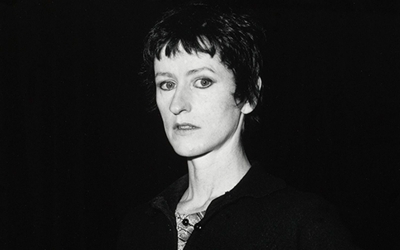Australian Poetry
Sign up to Book of the Week and receive a new review to your inbox every Monday. Always free to read.
Recent:
I admire Jeremy Prynne, Clark Coolidge, Mina Loy, and Lyn Hejinian, but I don’t know whether they have influenced my work. To limit this list in time somewhat: Baudelaire, Rimbaud, Eliot, Auden, Berryman, Ashbery, O’Hara. Among the Australians: Kenneth Slessor, Francis Webb, Michael Dransfield, John Tranter, Jennifer Maiden, Martin Johnston, John Forbes. Everything one reads or hears is an influence. The list seems infinite and includes songwriters such as Thomas Moore and Hank Williams.
... (read more)This cactus looks as if, on a reef,
it could be neighbour to sponge, equally at ease
under the sea – or strange as some tentacled hydra
on the window ledge, free
of quickening leaves.
Digging in the garden I found a moth
albinoed on a piece of bark by the fence.
Those were my radiation days; it was good
to lay down the spade and kneel in the soil.
'Young Male Lyrebird at the Illawarra Treetop Fly', a new poem by Judith Beveridge
He has his medley nearly ready. He has pieced together
his own fantasia, even if just from the sound of an owl
regurgitating a pellet of bat fur, a park ranger’s
jangling keys, the creak of cable strain when bored,
Does the for lease sign speak of anything
else than the failure of something; just as
the desert required the lake to dry. Each
dark window waiting to be turned yellow
Wisps of smoke, lamplight on manuscripts.
Pages fanned across an oak stool.
The hearth absorbs the stain of living.
In my dream I was surrounded by seraphs
wearing morning suits, looking at me
quizzically in the crowded Parliament. Then I was being chased
by a Russian mountain lion who drooled a lot





